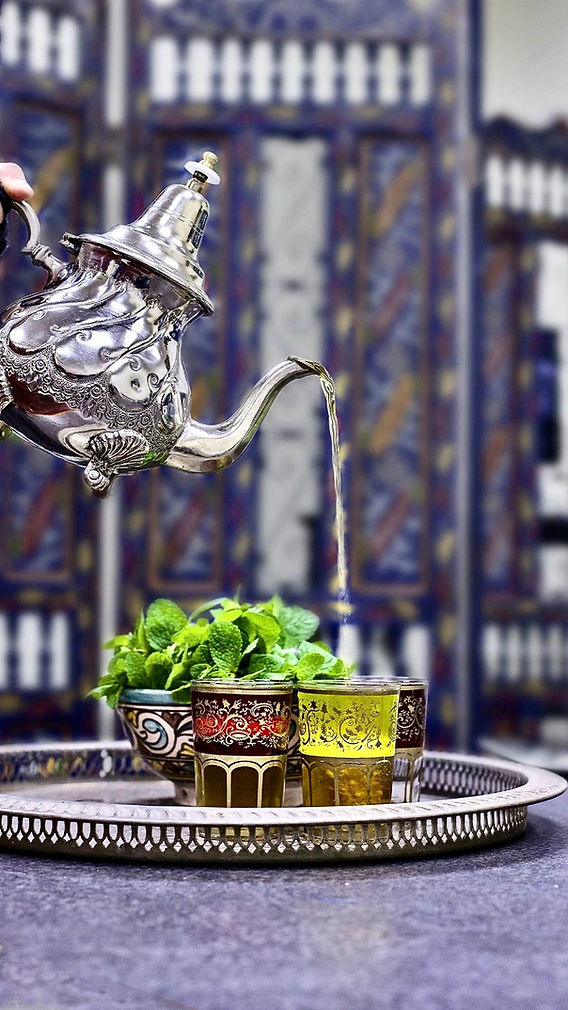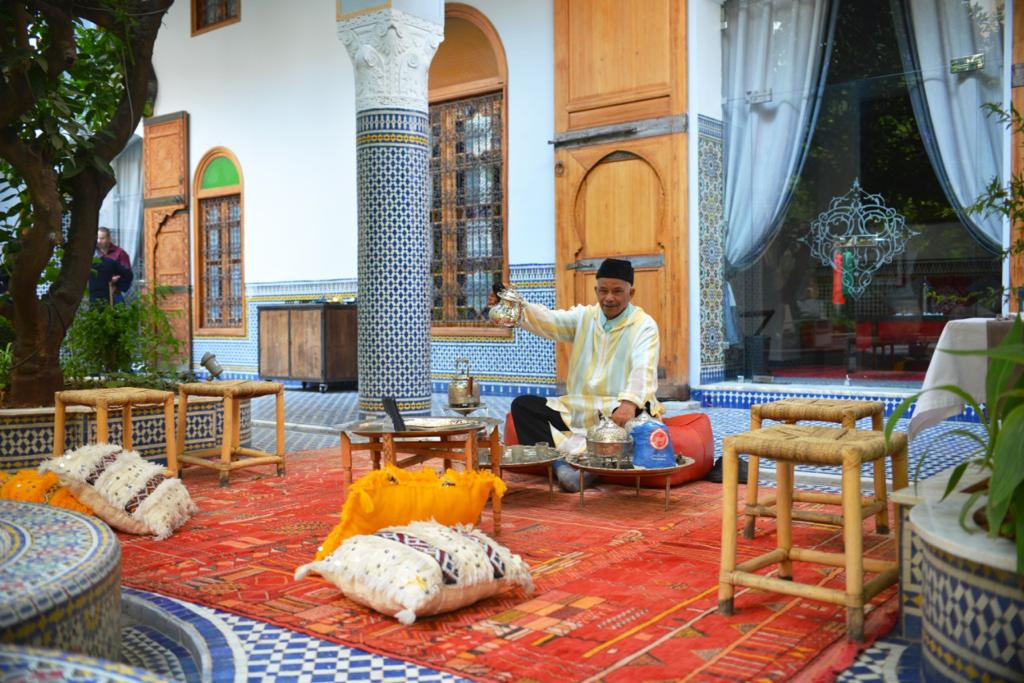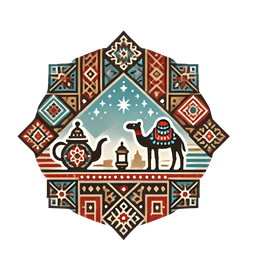- Published on
The Art of Moroccan Tea Ceremony A Symbol of Hospitality
- Authors

- Name
- Adil ABBADI
Introduction
In Morocco, the art of tea-making is more than just a simple act of brewing leaves in hot water. It's a revered tradition, a symbol of hospitality, and a cornerstone of Moroccan culture. The Moroccan Tea Ceremony is an intricate ritual that embodies the country's values of warmth, generosity, and respect for its guests. In this blog, we'll delve into the history, significance, and intricacies of this ancient tradition.
- Origins of the Moroccan Tea Ceremony
- The Art of Tea Preparation
- Significance of the Moroccan Tea Ceremony
- The Role of the Host
- Modern Adaptations of the Tea Ceremony
- Conclusion
- Embrace the Tradition
Origins of the Moroccan Tea Ceremony
The Moroccan Tea Ceremony has its roots in the 12th century, when tea was first introduced to Morocco from China by Arab traders. Over time, the ceremony evolved, incorporating local customs and traditions. The ceremony became an integral part of Moroccan etiquette, signifying respect, generosity, and friendship.

The Art of Tea Preparation
Preparing Moroccan tea, also known as "Atay," is an art form that requires precision, patience, and skill. The traditional tea set consists of a teapot, cups, and a sugar bowl. Green tea leaves are used, and the tea is sweetened with sugar. The tea is served in small cups, and it's customary to serve multiple cups during a single ceremony.
The process of preparing the tea is just as important as the tea itself. The tea leaves are carefully measured, and the water is boiled to the perfect temperature. The tea is then poured into the cups, and the host rotates the teapot in a circular motion to evenly distribute the tea leaves.
Significance of the Moroccan Tea Ceremony
The Moroccan Tea Ceremony is more than just a beverage; it's a symbol of hospitality, respect, and generosity. When a guest is invited to share a cup of tea, it's a sign of welcome and friendship. The ceremony is often performed during social gatherings, special occasions, and even in business settings.
In Morocco, the tea ceremony is an integral part of daily life. It's a moment to relax, socialize, and connect with others. The ceremony also serves as a bonding experience, fostering a sense of community and togetherness.

The Role of the Host
The host plays a vital role in the Moroccan Tea Ceremony. They are responsible for preparing the tea, serving the guests, and ensuring that everyone feels welcome and comfortable. The host's role is not only to serve tea but also to provide a warm and inviting atmosphere.
In Moroccan culture, the host is expected to be generous and respectful towards their guests. This is reflected in the way the tea is served, with the host offering multiple cups and ensuring that the guest feels at home.
Modern Adaptations of the Tea Ceremony
While the traditional Moroccan Tea Ceremony remains an integral part of Moroccan culture, modern adaptations have emerged. Many Moroccans have incorporated new elements into the ceremony, such as adding herbs and spices to the tea or using modern tea sets.
Despite these adaptations, the core principles of the ceremony remain unchanged. The focus on hospitality, respect, and generosity continues to be at the heart of the Moroccan Tea Ceremony.
Conclusion
The Moroccan Tea Ceremony is a testament to the country's rich cultural heritage. This ancient tradition embodies the values of hospitality, respect, and generosity, making it an integral part of Moroccan daily life. Whether you're a visitor or a local, the Moroccan Tea Ceremony is an experience that shouldn't be missed.
Embrace the Tradition
As you explore the vibrant culture of Morocco, take a moment to appreciate the beauty of the Moroccan Tea Ceremony. Join a local family for a traditional tea ceremony, or attend a modern adaptation in a trendy café. Whatever your choice, you'll be immersed in a symbol of Moroccan hospitality that will leave a lasting impression.
Remember, in Morocco, the tea ceremony is not just about drinking tea – it's about sharing a moment of connection, respect, and generosity with others.
